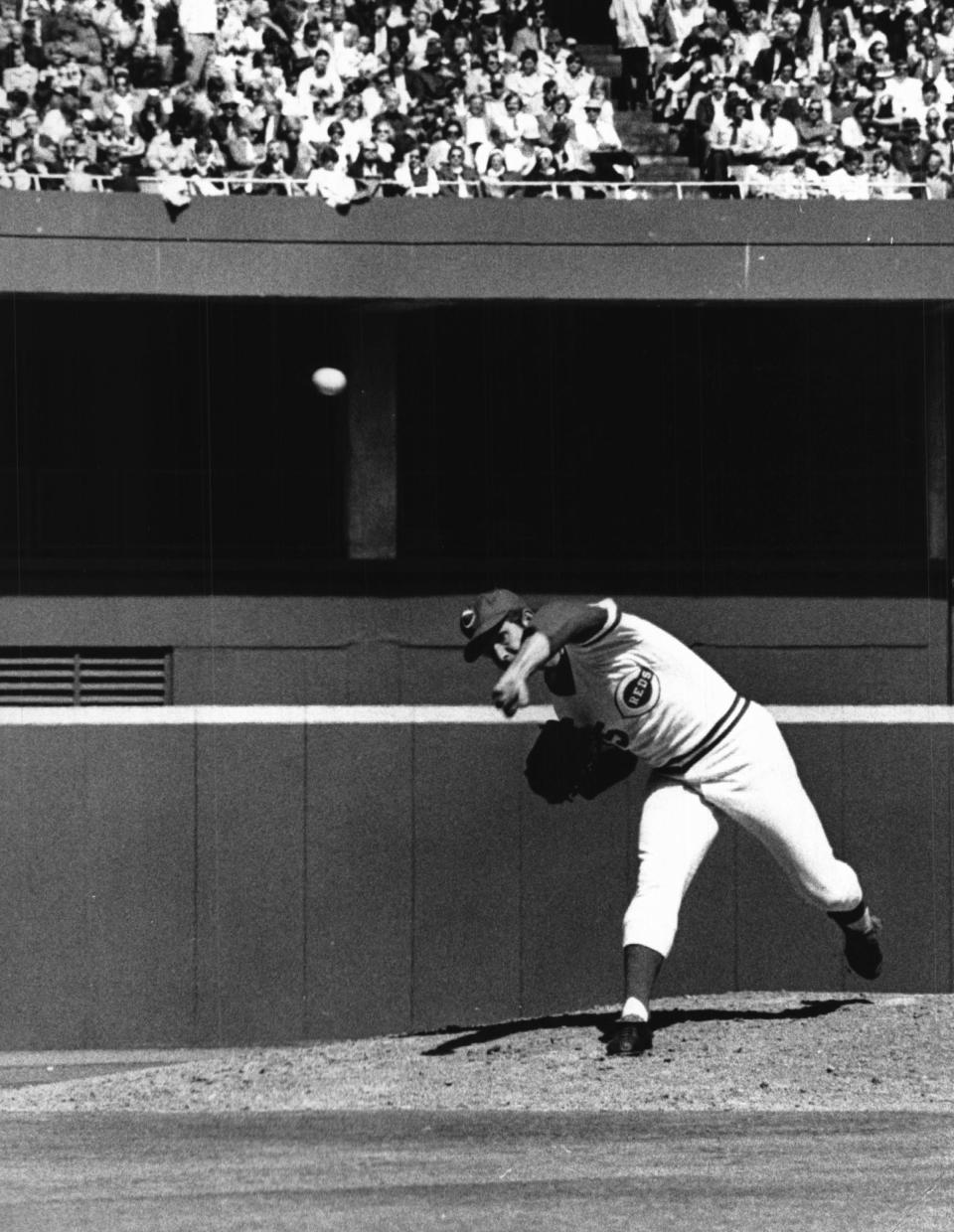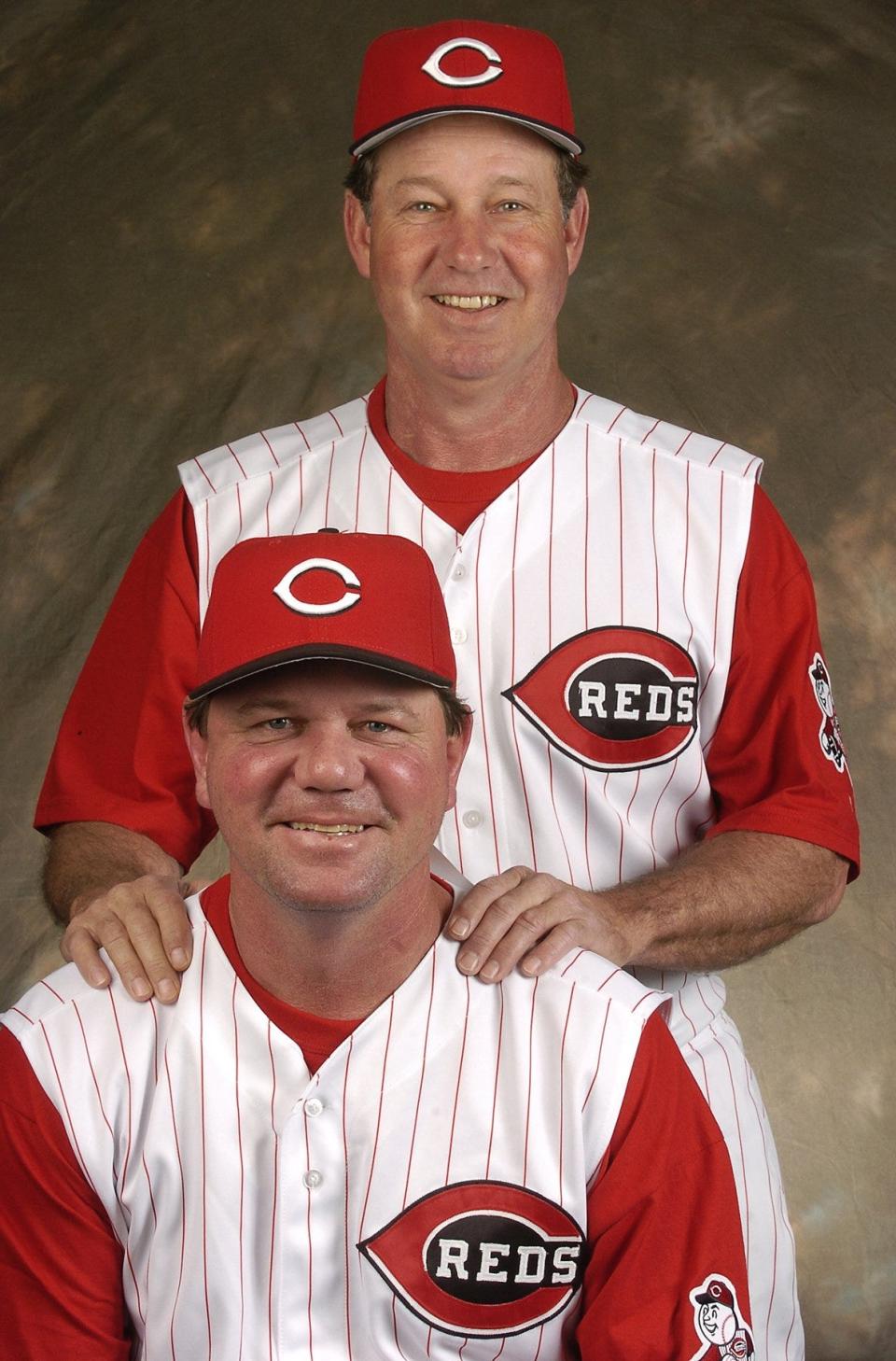Bass: Why Reds’ Don Gullett was ‘lucky,’ after all
Don Gullett seemed so young for all this. At 27, a double tear in his rotator cuff ended his career. At 35, he suffered a heart attack. At 39, he underwent triple-bypass surgery and a follow-up the next day to take care of complications.
We talked a week later. He said he sometimes would wonder what anyone might wonder: Why me?
“You ask yourself that question,” Gullett said, “and don’t get an answer.”
Reds spring training news Angels manager on Elly De La Cruz: 'He’s going to be something special'
Reds spring training Jonathan India Why’s Jonathan India still a Cincinnati Red? Here are reasons nobody's talking about
Reds spring training news David Bell announces starting pitchers for first few spring training games
This was June 1990, and the former Reds and Yankees pitcher was weak but recuperating at home in Maloneton, Kentucky, taking life slowly and considering its meaning.

He grew up wanting to be Sandy Koufax, debuted with the Reds at 19, won at an almost-historic rate over the years, and was declared Hall of Fame-bound by Reds manager Sparky Anderson if he could stay healthy. He could not. Injuries happen in baseball, but injuries kept happening to him. Now he had a heart attack and a triple-bypass, and he was not even 40.
“I think about that quite often,” Gullett said. “At 39, you just don’t have the problems I have. Maybe I’ll have smooth sailing for a while.”
He was due for some good luck.
Then again . . .
“A guy has to be lucky to be alive when he thinks about all of this,” he said. “A lot of people take life for granted.”
A lot of people would see Don Gullett for what he could have done without all the adversity, instead of what he did.
And he was not finished.
Don Gullett was not defined by his troubles
When Don Gullett died in mid-February, I found that column from a third of a century ago. Rereading it, I see someone who was indeed lucky, who survived and overcame adversity instead of being cheated or defined by it.
Gullett was the best starting pitcher on baseball’s best team with the 1975-76 Big Red Machine, when he pitched. Then he signed a six-year, $2.1 million deal as part of baseball’s inaugural free-agent class and helped the New York Yankees win the next World Series. Eight starts into his second season, he was done. Forever.
He went home to his farm and tried to pitch again, but his shoulder kept saying no. He tried to move on, but it was hard at times, at his age. After the heart attack in 1986, he tried to move on from that, too, to appreciate life as it was.
In late 1989, new Reds manager Lou Piniella helped his former Yankees roommate get the gig as Cincinnati’s Double-A Chattanooga pitching coach. Gullett was back in professional baseball.
Midway through his first season, he was in surgery.
After the heart attack, Gullett tried to stop smoking and cut back on coffee. He also was supposed to start exercising right away, but he waited two or three years before trying light to moderate exercises.
“You get this fear you’ll do something,” he said, “and then not be around.”
Before the heart attack, Gullett had maintained his playing weight of 190-195 pounds. Before the triple-bypass, he had ballooned to 225. A month earlier, he had started working out and running with his Chattanooga team, but stopped when his knees developed tendinitis. He needed to start exercising again. And his diet needed to change. Cut the dairy products. Trim the fat off red meat. “I’ll have to eat more fish and chicken and vegetables,” he said.
The emotional aftermath of the triple-bypass would likely be easier than that of the heart attack, according to his surgeon, Bruce Lytle. This time, Gullett knew he had coronary artery disease.
“He’s a very understanding, analytical person,” Lytle said.
It helped make Gullett so effective in his new career.
Don Gullett found his second career as coach
Don Gullett ascended the Reds system almost as quickly helping pitchers as when he was one.
He joined the parent Reds in 1993, first as bullpen coach and 44 games later as pitching coach, when Larry Rothschild was fired with manager Tony Perez.
Reds spring training Jonathan India Why Jonathan India’s still here and how that makes his fit the key for the Cincinnati Reds
Reds spring training fantasy news Reds place nine players on USA TODAY's fantasy baseball Top 200 for 2024
Reds spring training Noelvi Marte Reds third baseman Noelvi Marte's vision for the style of player he wants to become
Gullett showed a knack for turning around wayward pitchers. Pete Harnisch. Pete Schourek. Jeff Shaw. Jeff Brantley. Kent Mercker. Mark Wohlers. Reds manager Jack McKeon would refer to him as “St. Jude” and call him the “patron saint” of “lost causes” or “the impossible” or reclamation projects,” depending on the day.

Gullett knew pitching. He knew what it was like to be them. They could relate to each other. The Reds gave him one inexpensive project after another. He would tell pitchers to deliver each pitch with a purpose. As he said when he was selected to the Reds Hall of Fame, “You have to apply yourself with the attitude and mindset that the next pitch may be your last pitch.” Because you never know.
The last time the Reds won a playoff series was 1995. Gullett was the pitching coach. Four years later, when the Reds went all the way to a Game 163 tiebreaker, Gullett still was the pitching coach. He stayed until he and manager Dave Miley were fired during the 2005 season.
As a pitcher and a pitching coach, Gullett made his teams better. He tried to do the best with what he had and handle the rest. Thirty-four years ago, he saw himself as lucky. He decided the narrative. He made a choice.
At 73, Don Gullett died too young, of course. What he left behind is about more than baseball. Those who knew him said what a nice person he was. They were lucky, too. I can look back and find even more meaning in the words he told me after his surgery. Which also makes me lucky.
How is that for a legacy?
This article originally appeared on Cincinnati Enquirer: Bass: Cincinnati Reds Hall of Famer Don Gullett cherished his career despite its early end

